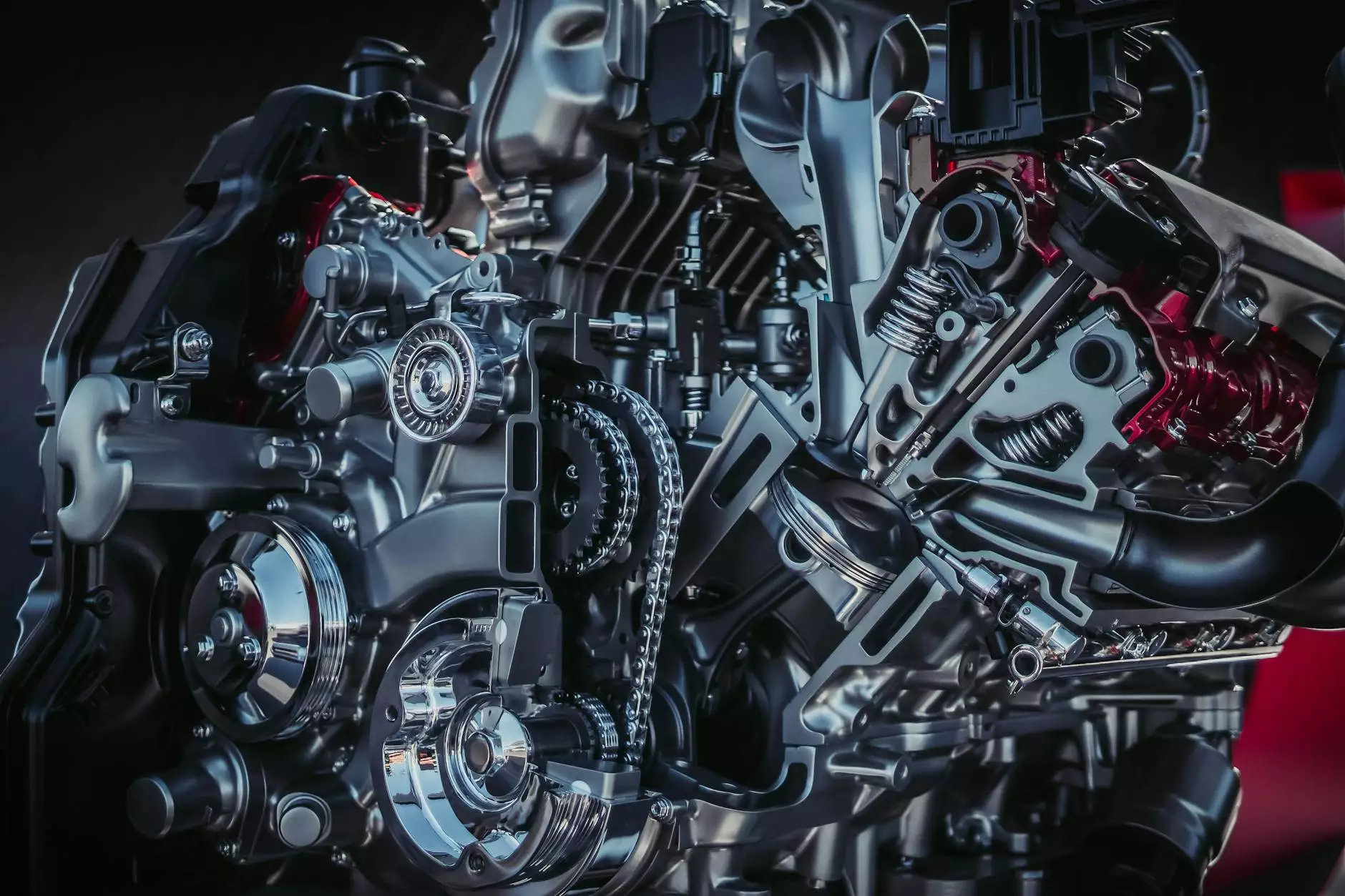The Importance of Diesel Engine Cylinder Heads

In the world of diesel engines, cylinder heads play a pivotal role. They are essential components that house the combustion chamber, allowing diesel fuel to mix with air and ignite to produce power for the engine. Understanding the significance of diesel engine cylinder heads can not only enhance the performance of your engine but also prolong its lifespan.
What is a Diesel Engine Cylinder Head?
A diesel engine cylinder head is a crucial element of diesel engines that sits atop the engine block. It encloses the top of the cylinders, supporting the valves, valve springs, and fuel injectors. This component is designed to withstand extreme pressures and temperatures, making it integral to the overall functionality of the engine.
Functionality of the Cylinder Head
The functionality of a cylinder head can be broken down into several key roles:
- Enclosing the Combustion Chamber: The cylinder head forms the upper part of each cylinder, creating a closed space where fuel combustion occurs.
- Housing Valves: It contains intake and exhaust valves that control the flow of air and exhaust gases in and out of the cylinders.
- Facilitating Heat Transfer: The cylinder head helps dissipate heat generated during combustion, ensuring the engine operates within the optimal temperature range.
- Structural Integrity: It provides structural support for the entire engine assembly, maintaining the alignment of the engine components.
Types of Diesel Engine Cylinder Heads
Diesel engine cylinder heads come in various designs and configurations, each tailored for specific engine types. Here’s a closer look at the most common types:
1. Plain Cylinder Heads
Plain cylinder heads are the simplest form, typically found in older diesel engines. They consist of a flat design without additional features and are often made from cast iron.
2. Crossflow Cylinder Heads
These cylinder heads are designed to improve airflow by allowing the intake and exhaust ports to be on opposite sides of the head, effectively increasing engine performance.
3. Turbocharged Cylinder Heads
Turbocharged engines utilize specially designed cylinder heads that can withstand higher pressures and temperatures, enhancing overall efficiency and power.
Factors Affecting Cylinder Head Performance
Several factors can influence the performance of a diesel engine cylinder head, including:
- Material: Cylinder heads can be made from cast iron, aluminum, or composite materials. Each material has its pros and cons regarding weight, heat dissipation, and durability.
- Design: The design of the cylinder head can impact airflow and combustion efficiency dramatically.
- Temperature Management: Effective cooling systems are essential to prevent overheating, which can warp the cylinder head and lead to engine failure.
Common Issues with Diesel Engine Cylinder Heads
While diesel engine cylinder heads are robust, they are not immune to issues that can arise over time. Here are some common problems:
1. Cracks and Warping
High temperatures and pressures can cause cracks and warping in the cylinder head, leading to serious performance issues. Regular inspections and proper engine cooling can help prevent this.
2. Valve Seat Wear
Wear on the valve seats can lead to improper sealing, resulting in blow-by, reduced compression, and power loss. Regular maintenance and quality parts can mitigate this problem.
3. Gasket Failure
The cylinder head gasket is a critical seal that prevents coolant and oil from mixing. A blown gasket can lead to severe engine damage if not addressed promptly.
Maintaining Your Diesel Engine Cylinder Head
To ensure the longevity and performance of your diesel engine, regular maintenance of the cylinder head is crucial. Here are some tips:
- Regular Inspections: Check for signs of wear and tear, including cracks or leaks.
- Use Quality Parts: When replacing components, opt for high-quality aftermarket or OEM parts to ensure performance.
- Keep the Cooling System Functional: Regularly check the coolant levels and ensure no leaks exist in the cooling system.
- Monitor Engine Temperature: Make use of temperature gauges to keep an eye on the engine's operating temperature.
Conclusion
In conclusion, the diesel engine cylinder head is a fundamental component that significantly impacts the performance and reliability of diesel engines. By understanding its functions, types, and common issues, engine owners can make informed decisions to maintain and enhance their engines. At client-diesel.com, we offer a range of high-quality spare parts and expert advice, ensuring your diesel engine runs smoothly and efficiently. Remember, proper care and maintenance of your cylinder head can lead to improved engine performance and longevity, making it an investment worth making.
FAQs about Diesel Engine Cylinder Heads
1. How often should I check my diesel engine cylinder head?
It is advisable to inspect your cylinder head during routine maintenance checks or any time you experience engine performance issues.
2. Can I replace the cylinder head myself?
Replacing a cylinder head can be complex and requires mechanical knowledge. It is often best to consult with a professional mechanic.
3. What should I look for when buying a new cylinder head?
Ensure the part is compatible with your engine model, check for quality materials, and consider reputable brands known for durability.
4. What are the signs of a failing cylinder head?
Signs include increased engine temperature, loss of power, visible coolant leaks, or oil contamination.
5. How can I improve the lifespan of my diesel engine cylinder head?
Regular maintenance, using quality parts, and ensuring the engine operates within the appropriate temperature range are essential for prolonging the life of your cylinder head.









